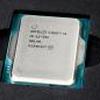Japan and the US have signed a bilateral chip technology partnership. This could end up as a joint venture between Japanese and US firms, or a wholly Japanese-owned setup. Semiconductors could be used for everything from quantum computers to smartphones.
TOKYO -- Japan will work with the U.S. to launch a domestic manufacturing base for 2-nanometer semiconductors as early as fiscal 2025, Nikkei has learned, joining the race for commercializing the next-generation chip technology.
Tokyo and Washington will provide support under a bilateral chip technology partnership. Private companies from the two countries will pursue research on design and mass production.
Taiwan Semiconductor Manufacturing Co. is ahead in developing mass production technology for 2-nm chips. Japan seeks to secure a stable supply of semiconductors by realizing domestic production of the next-generation chips.
Japanese and U.S. businesses could jointly establish a new company, or Japanese corporations could set up a new manufacturing hub. Japan's Ministry of Economy, Trade and Industry will partially subsidize the cost of research and development as well as capital expenditures.
Joint research will start this summer at the earliest, and a research and mass production center will be formed between fiscal 2025 and fiscal 2027.
TSMC, the world's largest contract chip manufacturer, is building a chip fab in Japan's Kumamoto Prefecture, but the plant will only produce less-advanced semiconductors scaled from 10nm to the 20nm range.
Smaller semiconductors lead to miniaturization and improved performance of devices. The 2-nm chips will be used in products such as quantum computers, data centers and cutting-edge smartphones. Those chips also reduce power consumption, shrinking carbon footprints.
The size can determine the performance of military hardware as well, including fighter jets and missiles. In that light, 2-nm chips are directly linked to national security.
In early May, Japan and the U.S. signed basic principles on semiconductor cooperation. The two sides will discuss the finer points of the cooperative framework during an upcoming "two-plus-two" meeting of cabinet economic officials.
Prime Minister Fumio Kishida's "new capitalism" agenda, approved by the cabinet last week, outlines the formation of a design and manufacturing base this decade through a bilateral public-private collaboration with the U.S.
IBM, which is strong in 2-nm R&D, developed a prototype last year. Fellow U.S. company Intel also is proceeding with R&D on the 2-nm process.
In Japan, a research lab in Tsukuba city run by the National Institute of Advanced Industrial Science and Technology is hosting a collaboration to develop manufacturing technology for advanced semiconductor lines, including those for 2-nm processes. Chipmaking equipment makers like Tokyo Electron and Canon are taking part in the collective, along with IBM, Intel and TSMC.
Japan is home to strong chip materials makers such as Shin-Etsu Chemical and Sumco, while the U.S. has the chipmaking equipment giant Applied Materials. This cooperation between chipmakers and key suppliers is intended to put mass production tech for 2-nm chips within reach.
TSMC sits at the forefront of mass production of next-generation chips. The company is expected to break ground this year on a 2-nm fabrication facility and expects to begin large-scale manufacturing of 3-nm chips later this year.
Japan with USA want to produce cutting-edge 2-nm chips as soon as 2025

